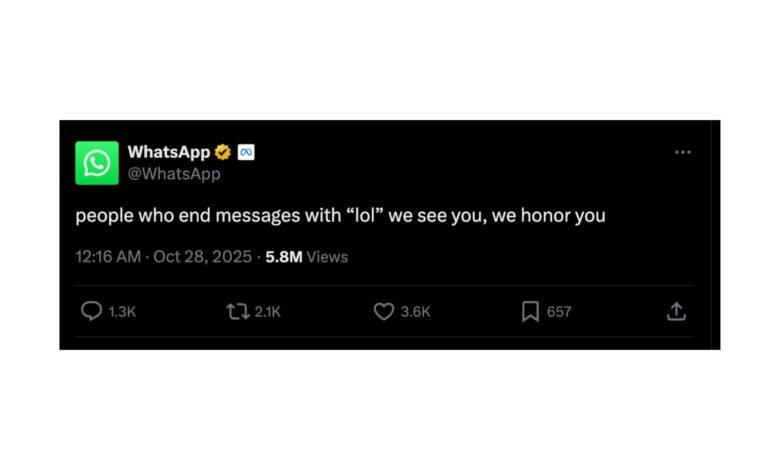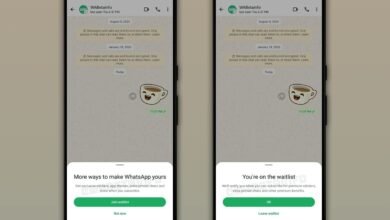
A recent post from WhatsApp’s official account on X.com (formerly Twitter), intended as a lighthearted cultural observation, quickly spiraled into a widespread debate, reigniting deep-seated user concerns about privacy and the platform’s ownership by Meta.
The incident serves as a stark case study in the clash between a brand’s message and the public’s perception of its parent company.
The Tweet and the Immediate Backlash
On October 28, the official @WhatsApp account posted a short, colloquial message: “people who end messages with ‘lol’ we see you, we honor you.”
The tweet was likely intended to be a relatable piece of social media engagement, tapping into a common linguistic quirk. However, the phrase “we see you” was interpreted by thousands of users not as a figure of speech, but as a literal admission that the company was reading their private messages.
The backlash was immediate and intense. Users flooded the replies, questioning the integrity of WhatsApp’s core feature: end-to-end encryption (E2EE). E2EE is a security protocol that ensures only the sender and the intended recipient can read a message, locking out everyone in between, including WhatsApp itself.
Responses included:
- “So no privacy at all??”
- “What a weird tweet from a Meta App”
- “So end-to-end encryption is just a lie”
- “aren’t we end to end encrypted how tf can you see then”
The platform was also flooded with memes, many depicting WhatsApp or Meta employees spying on users’ conversations.
WhatsApp’s Clarification
As the negative replies racked up hundreds of thousands of views, the WhatsApp account posted a follow-up to control the narrative. The company clarified its intent, stating:
“‘we see you’ is meant figuratively, not literally!
end-to-end encryption means NO ONE, not even we, can see your messages”
While this clarification was clear, for many users, the initial post had already confirmed their long-held suspicions – not necessarily about WhatsApp, but about its parent company, Meta.
Why It Struck a Nerve: The ‘Meta’ Context
The core of the backlash lies not with WhatsApp’s own security policies, but with the deep and abiding public distrust of its parent company, Meta.
Meta, which also owns Facebook and Instagram, operates on a business model that has been widely criticized for its reliance on harvesting vast amounts of user data for targeted advertising. This history is in direct conflict with WhatsApp’s brand promise of absolute privacy.
This user wariness is built on a foundation of well-documented privacy scandals, including:
- Cambridge Analytica: The most prominent scandal, which came to light in 2018. It was revealed that the data of as many as 87 million Facebook users was improperly harvested by a political consulting firm. The incident resulted in a record $5 billion fine from the U.S. Federal Trade Commission (FTC) for violating user privacy.
- FTC and EU Scrutiny: Both Facebook and Instagram have faced continuous regulatory scrutiny and fines, particularly in the European Union, related to their data-handling practices and the transfer of user data between countries.
- Tracking and Advertising: Users are acutely aware that their activity on Instagram and Facebook is tracked to build detailed profiles for advertising.
For this reason, when an app owned by Meta says “we see you,” a significant portion of the public does not hear a friendly social media manager. They hear the voice of a data-harvesting corporation, and their immediate assumption is that the “mask” of privacy has slipped.
The incident demonstrates the fragile nature of brand trust. While WhatsApp’s encryption may be secure, its reputation remains tethered to Meta’s, ensuring that even a simple joke can be perceived as a serious threat.






